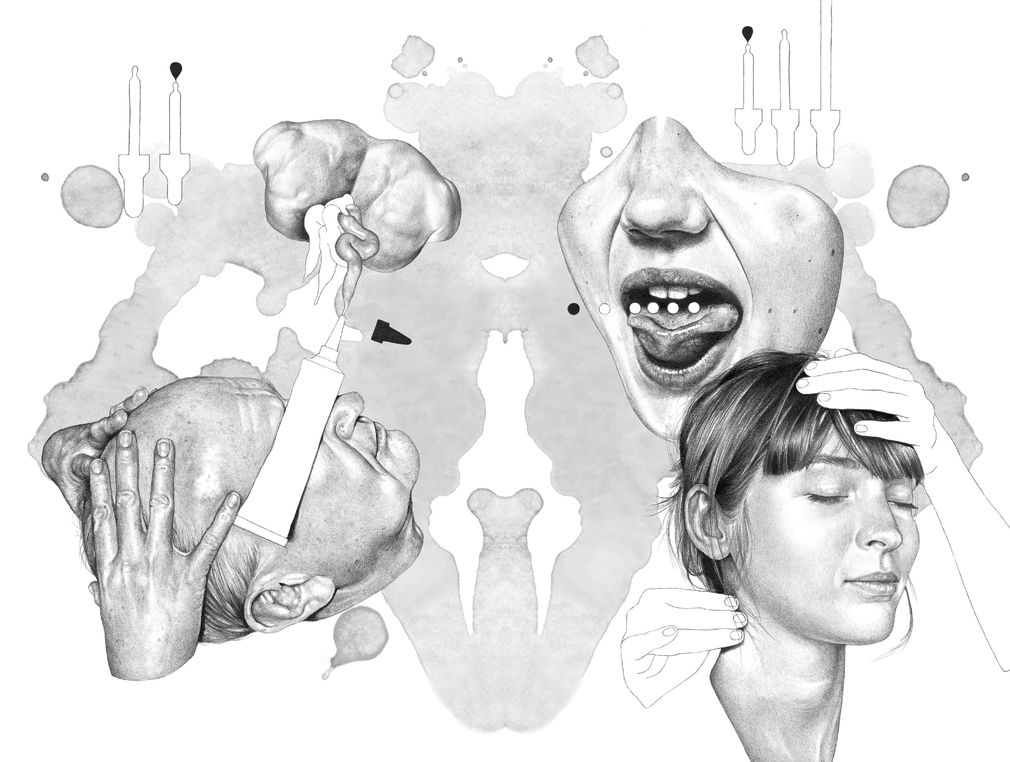Department of Art
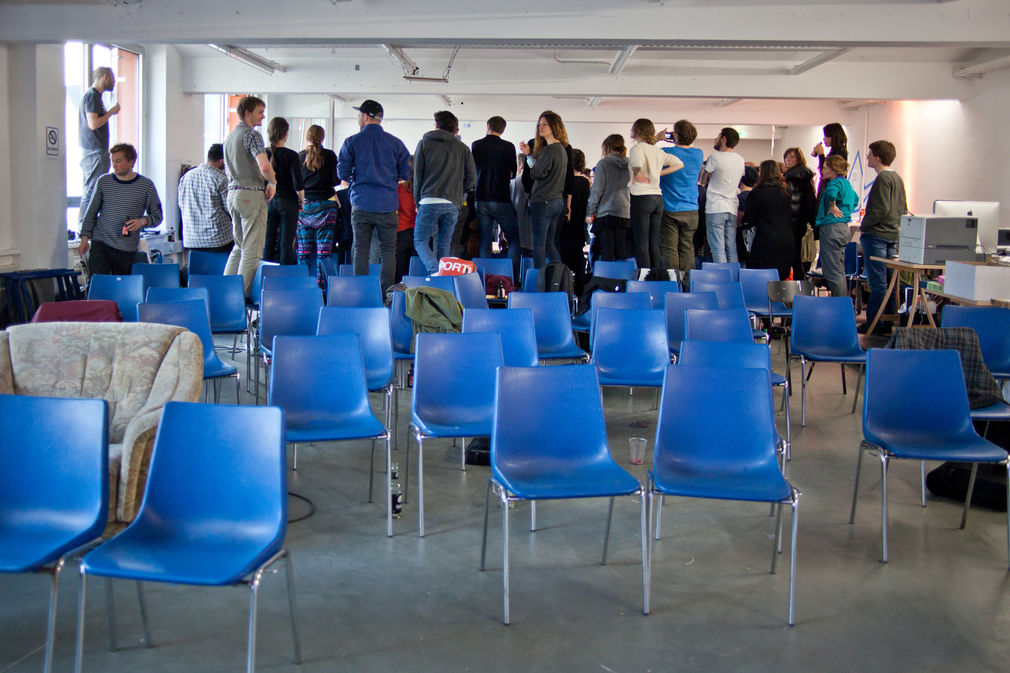
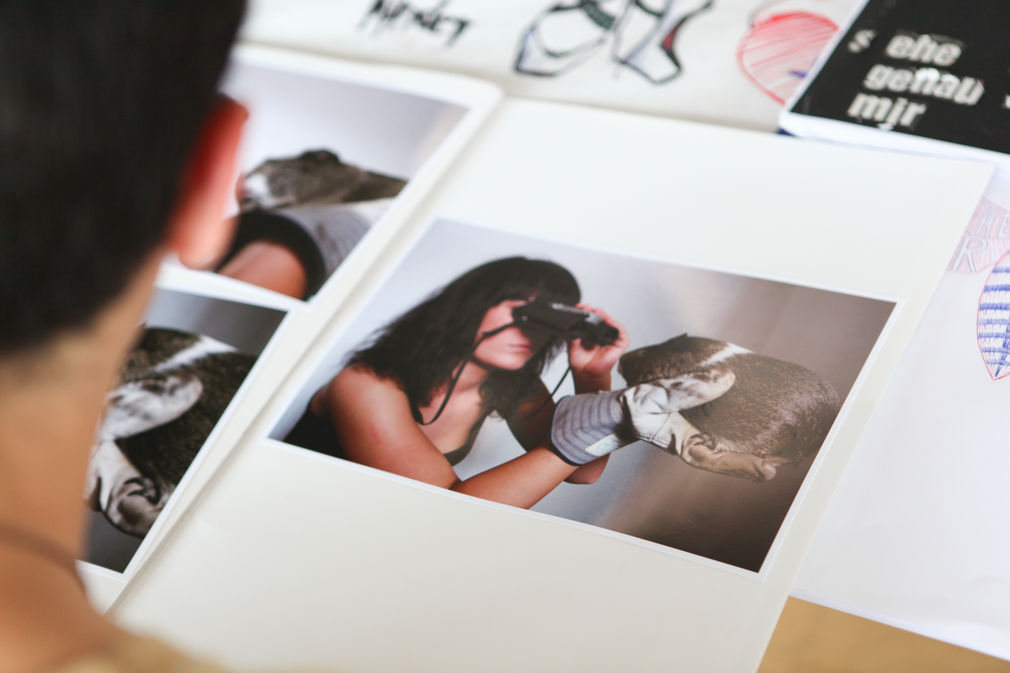
The Department of Art qualifies students for artistic and scientific activities in the spectrum of fine arts and applied design.
The teaching areas of the Department of Art are characterized by openness and understanding for each other. Students have free access to all teaching areas within the Department of Art, and in some cases also to teaching areas in the Department of Design. This open and variable concept, called the Offenbach Model, is unique in the world; it takes into account the forward-looking practice of constantly changing challenges and opportunities in art and design.
In the course of study, emphasis is placed on experimental exploration, process-oriented development from idea to conceptual concretization to implementation, in which students' individual, social and intellectual competencies can grow.
In the intersection of free and applied working methods, innovative possibilities can be explored and new fields staked out.
Unlike classical art academies, there are neither classes nor masters at the HfG. Students can study in parallel with different professors and develop their own artistic position and practice through a variety of teaching areas and perspectives.
The artistic and creative, scientific and technical courses offered by professors, teachers for special tasks and heads of workshops, as well as artistic and scientific staff, changing guest professors and lecturers, all come into their own.
Artistic teaching areas
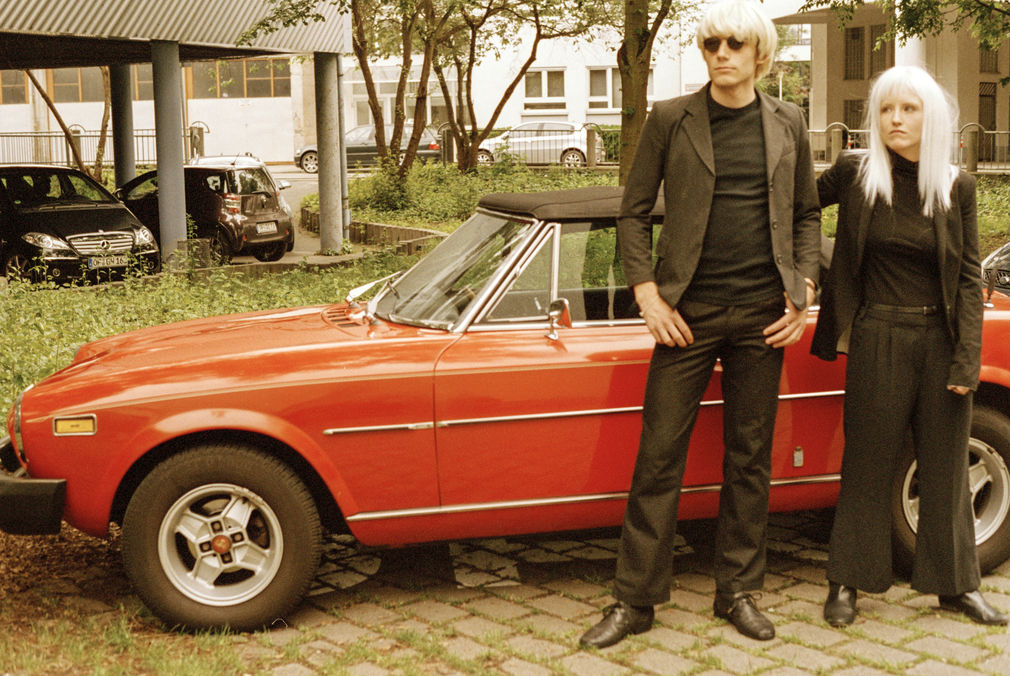
n_ico_n factory
Theoretical teaching areas
The HfG is an artistic-scientific university. It offers a broad spectrum of scientific-theoretical subjects, which flank, deepen and complement the teaching of the artistic-design subjects in a judgmental manner. The Department of Art teaches art history, philosophy/aesthetics, sociology/theory of the media, and perception theory, supplemented by other theoretical courses geared to specific artistic-design issues.
Depending on the theoretical subject, developments in art and culture and their social role are reflected upon here. This is by no means only about the systematic historical classification or the critical discussion of the corresponding developments; rather, the exchange between artistic-design and theoretical-scientific disciplines, which is programmatically cultivated at the HfG, is also effective in the opposite direction. Just as what is researched in theory and science can be reflected in artistic and design work, conversely, for theory and science the problems and developments that emerge in the artistic-design subjects can be the occasion for the revision of concepts or the development of new questions and fields of research.
This double perspective determines the theoretical and scientific work: it contributes to a self-understanding of the artistic-design subjects about the concepts and questions that implicitly or explicitly guide them, and at the same time it faces the constant challenge of practice.
Friederichs Foundation (Text)
Honorary professorships
Vocational Preparation
The HfG trains excellent, independently active and contributing artists and designers who can hold their own in a changing professional world. In addition, the career preparation program offered at the university with counseling and training accompanies students on their first steps into professional life. It offers a series of lectures and seminars on the subject of starting a business and also a consultation hour to help students plan their careers and professional entry into the world of work.
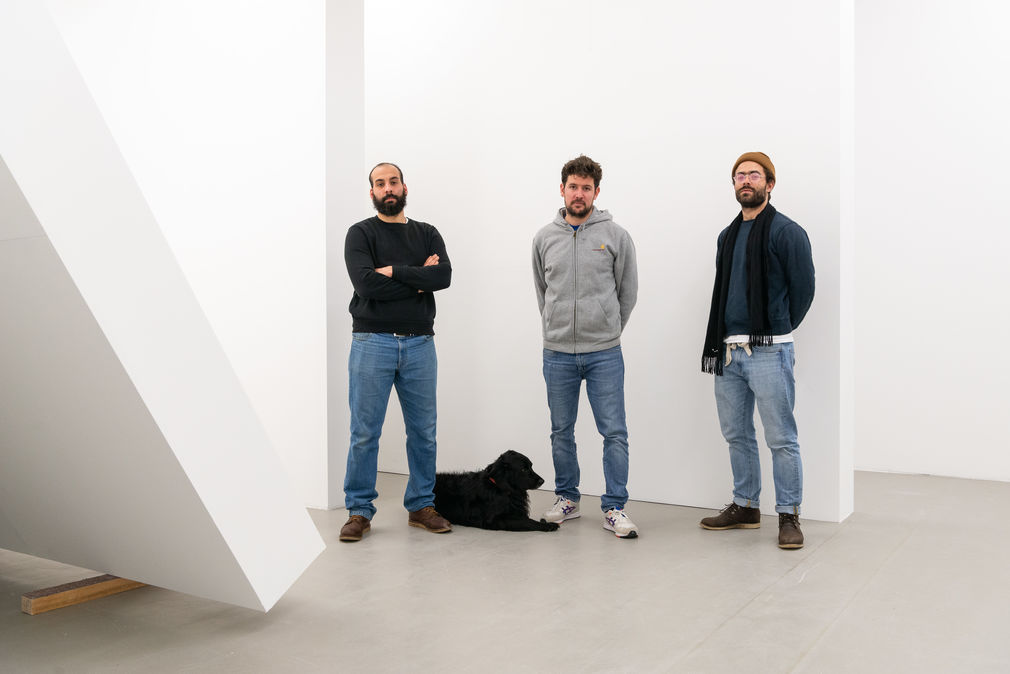


Loimi Brautmann and Nicolas Kremershof, graduates from Visual Communication Faculty founded Urban Media Project (together with Oliver Kremershof)
Photo: Jessica Schäfer
Lecturer
Additional lectures summer semester 2024
Jasmina Al Quaisi
Frank Amann
Svenja Bernhold
Anselm Baumann
Laura Brunner
Nicholas Bussmann
Sascha Ehlert
Jan Hartmann
Karoline Kirberg
Esra Klein
Nadine Kolodziey
Cornelia Matani
Leonie Martin
Mario Mentrup
Maria Mohr
Ishkhan Nazaryan
ishkhannazaryan@googlemail.com
Avery Gia Schramm
Martin Selbert
Florian Siebeck
Nina Sieverding
Sophie Watzlawick
Amin Weber
Nils Wildegans
Marco Thoms
Study in the department of art
Beginning in 2022, the following degree programs will be offered in the Department of Art:
- Bachelor of Fine Arts
- Master of Fine Arts
- Master of Fine Arts with a larger theoretical component
The diploma programs will expire in 2028.
Further information
- Bachelor's and Master's degree programs in art
- Diploma program in Art
- Study and examination regulations of the Art Department
Course Objectives
The courses qualify students for artistic-creative activities in the fields of art, media and design as well as theory and science. As a Department of Art at an art university, the teaching areas pursue the exploration of artistic-creative contents as well as the promotion of the individual creativity of the students. The aim of the course is to acquire the corresponding practical, artistic-creative, and scientific-theoretical basics as well as methods of experimental work. In addition, technical implementation is taught and tested, and aesthetic judgment is trained.
In the workshops, laboratories and studios, computer and media technologies as well as analog and classical creative-artistic techniques are taught, researched and further developed. Accompanying the practical qualification, comprehensive historical, cultural, social and economic contexts are taught in all teaching areas through the theoretical-scientific subjects.
No separation between art and design
The "Offenbach Model" dispenses with the traditional separation of liberal and applied disciplines. This model is unique and is based on the practice of softening and hybridizing the boundaries between art and design and between different teaching areas in education. The Department of Arts' degree structure is characterized by courses of equal standing that are accessible to every student. Students can pursue their inclinations and interests across foci without having to neglect a respective subject-oriented specification.
Dean's Office
The Dean's Office is the parliament of the university; it manages the department, prepares and implements the decisions of the Departmental Council. It concludes target agreements with the Senate and the Presidential Board and, within the framework of structural and development planning, decides on the equipment of the teaching areas and on the use of personnel and material resources. The Dean's Office is also responsible for the organization of studies and examinations.
Dean
niessler@hfg-offenbach.de
T 069.800 59-217
Vice Dean
T 069.97768480
Dean of Students
Prof. Dr. Marie-Hélène Gutberlet
Student Liaison
Prof. Dr. Marie-Hélène Gutberlet
Office Manager, the Dean’s Office and Examination Committee
Christina Wittich
wittich@hfg-offenbach.de
Tel.: + 49 (0)69 80059 123
Main building, 115b
Examination Comittee
Anja Mainardi-Ploch
mainardi-ploch@hfg-offenbach.de
Tel.: + 49 (0) 69.800 59-192
Hauptgebäude, Raum 115b
Departmental Secretary
Yvonne Truber
Tel.: + 49 (0)69 80059 200
Main building, 115a
Postal address
Hochschule für Gestaltung
Dean' Office Department of Art
Schlossstrasse 31
63065 Offenbach/M
Germany
Visitors
Room 115a / 115b, 1st floor, main building
Entrance: Schlossstrasse 31
Opening times
Monday to Thursday 9 a.m. to 12 noon
Closed on Friday
Dean’s consultation hours
By appointment
